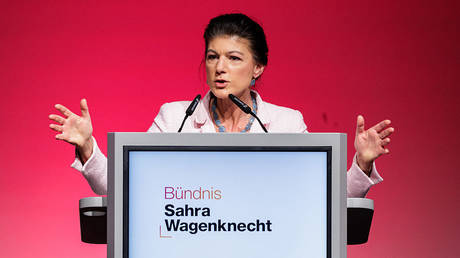
The country’s domestic intelligence agency has suspended its ‘extremist’ designation for the party following legal and public backlash
Germany’s domestic intelligence agency has temporarily suspended its classification of the Alternative for Germany (AfD) party as a “confirmed right-wing extremist” group, pending the outcome of a legal appeal.
The Federal Office for the Protection of the Constitution (BfV) suspended the label on Thursday and removed a press release about the designation from its website.
The classification, which was announced by the BfV last week, was based on a comprehensive report alleging that the AfD promotes policies excluding individuals with migrant backgrounds, particularly Muslims, from full societal participation. The BfV claimed that the party “disregards human dignity” and uses terms such as “knife-wielding migrants” to ascribe violent tendencies to non-European ethnic groups.
The AfD leadership condemned the decision as “a severe blow to German democracy” and filed a lawsuit in a Cologne court, arguing that the classification was politically motivated and lacked sufficient evidence. As a result, the BfV temporarily withdrew the classification, but said it would monitor the party as a “suspected case” of an extremist organization.
The suspended designation would have empowered the BfV to carry out broad surveillance of the AfD’s activities. The lower-level designation also allows surveillance, but under stricter judicial oversight.
AfD co-leaders Alice Weidel and Tino Chrupalla welcomed the temporary suspension, calling it “a first important step” that will help “counter the accusation of right-wing extremism.”
The ‘extremist’ label was met with skepticism by many German politicians. Then-German Chancellor Olaf Scholz and incoming Interior Minister Alexander Dobrindt warned against banning the AfD. Dobrindt has argued that the party should be made irrelevant through good governance rather than drastic measures.
He also insisted on a discussion over the reasons that the AfD has risen to prominence, referring to recent polls indicating that it has become the most popular party in Germany, reaching 26% support.
The AfD’s surge has often been attributed to public frustration over the immigration policies of the mainstream parties, as well as economic challenges and perceived government ineffectiveness.




